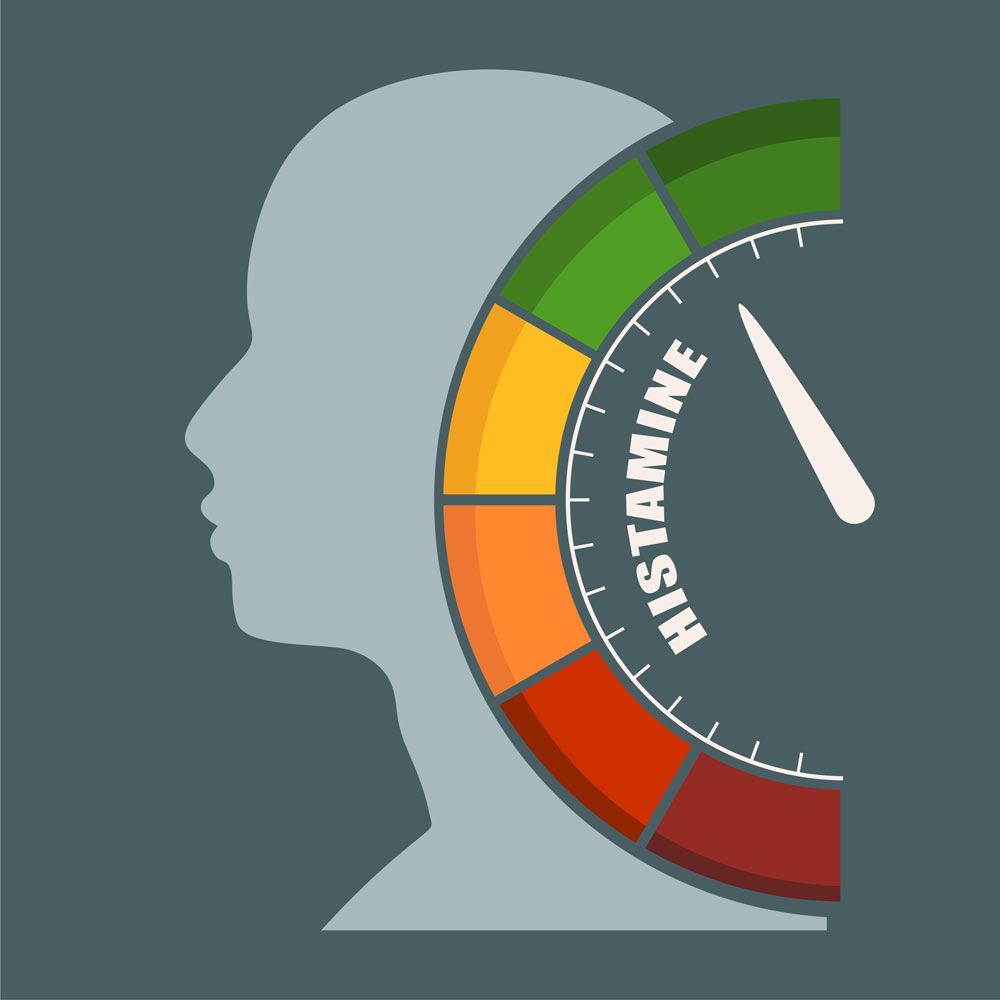New research from Imperial College London and the University of South Carolina sheds light on the mysterious link between inflammation and depression.
This study in mice suggests that inflammation-induced histamine dampens the extracellular release of serotonin in the hippocampus and reduces the efficacy of selective serotonin reuptake inhibitors (SSRIs). These findings (Hersey et al., 2021) were recently published in the Journal of Neuroscience.
“Inflammation could play a huge role in depression, and there is already strong evidence that patients with both depression and severe inflammation are the ones most likely not to respond to antidepressants,” senior author Parastoo Hashemi of ICL’s Department of Bioengineering said in an August 2021 news release.
“Our work shines a spotlight on histamine as a potential key player in depression. This, and its interactions with the ‘feel-good molecule’ serotonin, may thus be a crucial new avenue in improving serotonin-based treatments for depression,” she added.
What’s the link between inflammation and depression?
For this study, first author Melinda Hersey and colleagues started by implanting specialized microelectrodes that can measure mouse brain serotonin levels in real-time using a technique known as fast-scan cyclic voltammetry (FSCV).
Once the microelectrodes were in place, the researchers injected half the mice with an inflammation-inducing substance called lipopolysaccharide (LPS) and the other half of the mice, which served as a control group, with a non-inflammatory saline solution.
The FSCV data showed that serotonin levels dropped within minutes of receiving the inflammatory LPS injection but were unchanged in the control group. The first phase of this experiment shows how quickly an inflammatory response in the body can affect serotonin in the brain. However, based on previous studies, the researchers knew that LPS itself wasn’t causing these brain responses because LPS can’t cross the blood-brain barrier.
In the next phase of this experiment, the researchers administered SSRIs to the mice and found that it was much easier to boost serotonin levels in the control group that had less inflammation-induced histamine in their brains. Lastly, the researchers administered histamine-reducing drugs and found that lowering histamine caused serotonin levels to climb back up to baseline levels in the LPS mice.
Of note: The histamine-reducing drugs used in this mouse study are different from antihistamines that people can buy over the counter to treat allergies. Please do not misinterpret these findings in mice to suggest that taking an antihistamine in conjunction with your SSRI will boost its efficacy; OTC histamine antagonists that block H-1 receptors in the central nervous system are not known to have this effect.
Inflammatory responses increase histamine, which may impede serotonin and impair SSRIs.
Upon further investigation, the researchers pinpointed that LPS started a chain reaction that resulted in more inflammation-induced histamine, which stymied the brain’s ability to release serotonin and impaired the capacity of an SSRI to increase hippocampal extracellular serotonin.
As the authors explain in the news release, “[We] found that the histamine in the brain was triggered by the inflammatory response and directly inhibited the release of serotonin, by attaching to inhibitory receptors on the serotonin neurons. These inhibitory receptors are also present on human serotonin neurons. So, this effect might translate to people.”
Notably, because it’s currently impossible to use the combination of serotonin-measuring microelectrodes, FSCV, and LPS in human subjects, this animal research gives us fresh insights into how histamine affects serotonin levels and SSRI efficacy in the mammalian brain.
That said, more human studies are needed to investigate how bodily inflammation might trigger a chain reaction that increases histamine levels in ways that impair SSRIs’ ability to boost serotonin levels in people.
“Inflammation is a whole-body response and is therefore hugely complex. Depression is similarly complex, and the chemicals involved are affected in myriad ways by both genetic and environmental factors,” Hashemi concluded. “Thus, we need to look at more complex models of depression behaviors in both mice and humans to get a fuller picture of both histamine and serotonin’s roles in depression.”
The original version of this article was first published in Psychology Today.
At LCC we have a dedicated and highly skilled team ready to help you in Hertfordshire, or from the comforts of your own home. If you are experiencing negative thoughts we offer counselling services for depression and anxiety.





